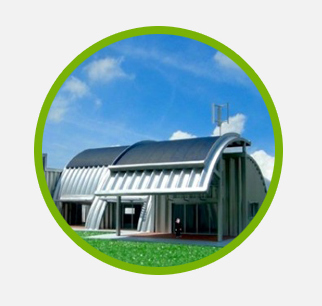
Living off the grid has been defined in many ways. For some, it's a romantic dream – the desire to "leave it all behind". For many, living off the grid has become a practical consideration. It doesn't matter what your reason is. What you do need to consider is the consequences of getting off the grid. In particular, you need to understand what exactly is involved in being off the grid.
Essentially, the concept of escaping from the government's power system involves a variety of different but closely related aspects of everyday living. If you decide to abandon the convenience of delivered hydro-electric power you need to look at what you'll put in its place. You will need specifically to look at off grid power systems. You'll also want to consider the impact it will have on various appliances and electronics, including DC powered computers.
These factors can create potential problems. You'll need to look at every feature of your home. Off the grid homes need to be able to undergo the changes without inflicting severe consequences. Be sure you examine all the features of your life style before you decide to opt for a change. The first step is to consider what needs to be looked at when it comes to an off the grid home.
The ideal off the grid structure stands on south-facing slopes, to help with passive heating. Most of the largest windows also face in this direction. The walls are correctly insulated with heat-absorbing material. Window coverings are constructed to encourage heat retention in summer.
The size of the structure is also important. Larger structures require more heat than do smaller ones. If it's possible, construct your house to meet specific criteria in terms of size and materials. Before the design becomes reality, however, you need to look at what will be the source of your power.
There are three possible choices for off grid power systems. The major sources are: wind, sun and water. The sun will provide solar power. The wind generates wind power and the water will produce micro-hydro. There is also another less-common mode of energy production. You can extract energy from the earth. This is called geo-thermo energy.
Whatever the source of the energy, it's important to consider efficiency. Whether you're looking at PV panels for solar power or wind turbines for wind energy, be careful to select the products that are the most energy efficient. In both design and production, this remains a priority. Without efficient equipment, you might as well remain on the grid.
Another important factor is compatibility. While DC powered computers can take solar energy directly and have a built-in inverter to turn AC into DC, make sure that all appliances have comparable capabilities. This will help you avoid expensive mistakes in the long-run.
Living off the grid is not something you should take up on a whim. It requires careful thought and even more careful consideration. From off the grid homes to off grid power systems, there's a heck of a lot to consider before you make the final commitment. When you make your mind up, be sure your decision is an informed one.
New! Comments
Have your say about what you just read! Leave a comment in the box below.